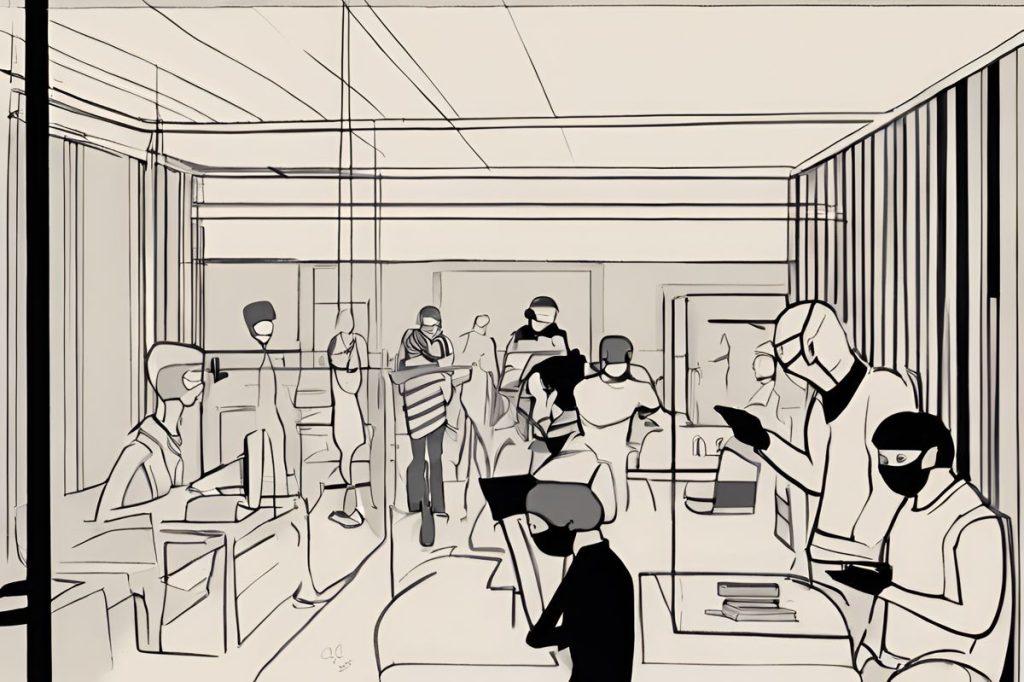During a dust warning in Cyprus, vulnerable groups, especially those with respiratory and cardiovascular conditions, are advised to stay indoors, avoid outdoor activities, wear high-protection masks, keep windows closed, and monitor air quality reports. Dr. Haris Armeutis highlights the need to minimize exposure to airborne dust particles, which can exacerbate health conditions, emphasizing the importance of taking precautions and seeking medical advice if symptoms worsen.
What precautions should vulnerable groups take during a dust warning?
Vulnerable individuals, particularly those with respiratory and cardiovascular conditions, should take the following precautions during a dust warning:
1. Stay indoors as much as possible.
2. Avoid outdoor exercise and activities.
3. Wear high-protection masks if outside.
4. Keep windows closed and use air purifiers.
5. Stay informed on air quality reports.
6. Ensure access to medications and seek medical advice if symptoms worsen.
Understanding the Dust Phenomenon
Residents of Cyprus are bracing themselves as the weather forecasts predict an influx of airborne dust particles. Expected to last from Wednesday evening into Thursday, these conditions necessitate caution amongst vulnerable populations. Dr. Haris Armeutis, a respected pulmonologist, emphasized the importance of minimizing exposure for individuals with pre-existing respiratory and cardiovascular conditions. These tiny particles, often too small to be filtered by the body’s natural defenses, are capable of penetrating deep into the respiratory system.
The science behind these dust events is complex. Meteorologically speaking, dust storms can occur when strong winds lift fine particles from dry surfaces, dispersing them over large areas. These suspended particles vary in composition but often include a mix of soil minerals and various chemical compounds. When these foreign bodies are inhaled, they can cause inflammation or exacerbate existing conditions, particularly in those with compromised respiratory health.
Health Advisory for At-Risk Individuals
The meteorological service’s alert brings specific challenges for those with bronchial asthma, chronic obstructive pulmonary disease (COPD), and cardiovascular diseases. The elderly are also at increased risk during these dust events. Studies correlate spikes in dust levels with heightened health risks for these individuals, reinforcing the need for vigilance and protective measures.
Dr. Armeutis recommends that, until the dust settles, people should stay indoors as much as possible, avoiding exercise and other outdoor activities. Workers who must be outside should take additional precautions, such as wearing high-protection masks that can filter out the minute particles. These precautions can significantly reduce the chances of adverse health effects during dust episodes.
Precautionary Measures and Community Support
As communities prepare for the incoming dust, local health officials are disseminating advice to help minimize the impact. Some practical steps include keeping windows closed, using air purifiers indoors, and staying updated on air quality reports. It’s crucial for individuals with health concerns to have access to medications and to seek medical advice if symptoms worsen.
Schools, businesses, and community organizations can play a pivotal role by adjusting outdoor activities and educating people about the risks. Raising awareness about the importance of wearing masks and limiting exposure during peak dust periods can ensure better protection for everyone, particularly those most vulnerable.
How do dust storms occur and what do they consist of?
Dust storms occur when strong winds lift fine particles from dry surfaces, dispersing them over large areas. These particles consist of a mix of soil minerals and various chemical compounds. When inhaled, these particles can cause inflammation or exacerbate existing respiratory and cardiovascular conditions, particularly in vulnerable individuals.
Who are considered vulnerable groups during a dust warning in Cyprus?
Vulnerable groups during a dust warning in Cyprus include individuals with respiratory and cardiovascular conditions such as bronchial asthma, chronic obstructive pulmonary disease (COPD), and cardiovascular diseases. The elderly are also at increased risk during these dust events.
What specific precautions should individuals with pre-existing health conditions take during a dust warning?
Individuals with pre-existing health conditions should take the following precautions during a dust warning:
1. Stay indoors as much as possible.
2. Avoid outdoor exercise and activities.
3. Wear high-protection masks if outside.
4. Keep windows closed and use air purifiers.
5. Stay informed on air quality reports.
6. Ensure access to medications and seek medical advice if symptoms worsen.
How can communities and organizations support vulnerable individuals during a dust warning?
Communities and organizations can support vulnerable individuals during a dust warning by:
1. Adjusting outdoor activities to minimize exposure.
2. Educating people about the risks of dust exposure.
3. Raising awareness about the importance of wearing masks.
4. Providing access to medications and medical advice for those in need.

